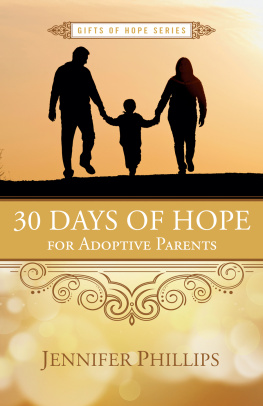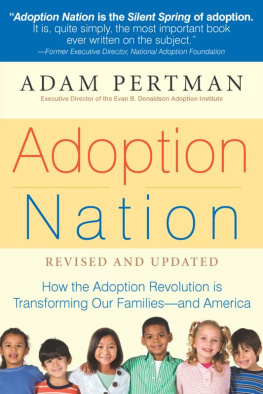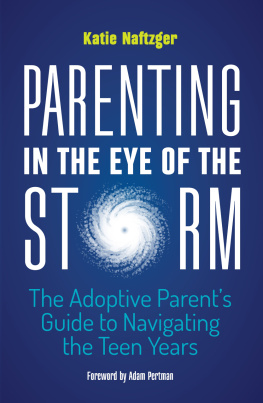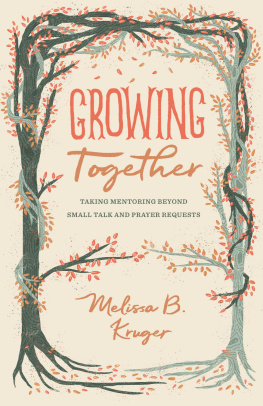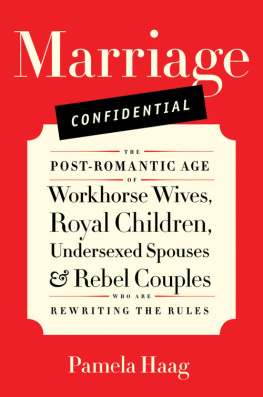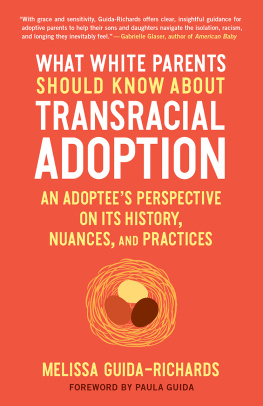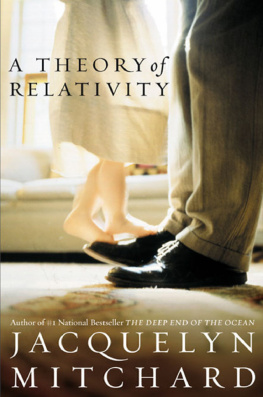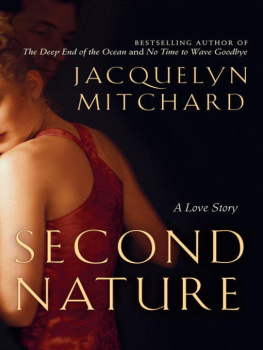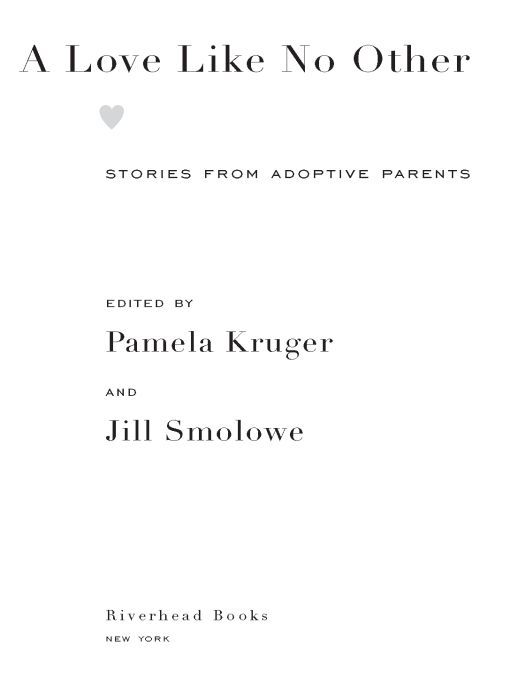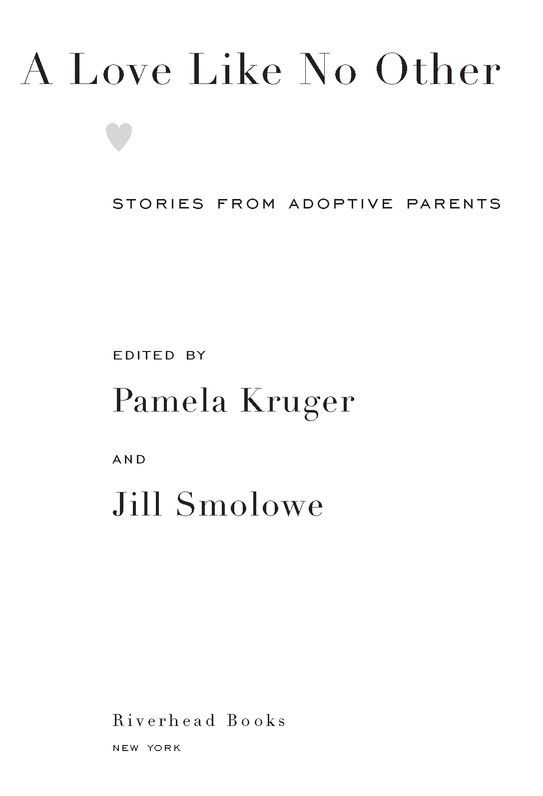Table of Contents
PRAISE FOR
A Love Like No Other
A Love Like No Other contains some gorgeous writing, deeply felt and strikingly expressed. Its reflections on the joys, complexities, and occasional heartbreak of the parent-adoptive child relationship hold value for anyone, whatever the context or constitution of their families.
The Christian Science Monitor
A Love Like No Other: Stories from Adoptive Parents features first-person adoption accounts from winners of the Pulitzer Prize, National Book Award, and Emmy Award, among many others.... If theres one thing youll learn after reading these compelling, complex, and compulsively readable tales is that the notion of pedigree amounts to a hill of beans in negotiating the emotional land mines inherent in building a family.... While love, for the most part, does indeed conquer all, its the real, messy, unsanitized version of the emotion, the one that all of usparents or notcan relate to in our heart of hearts.
Elle
From various perspectives, twenty adoptive parents offer evocative, sometimes provocative, personal essays that have the liveliness and immediacy of prose fiction.... Any parent will find commonality here, but the collection will especially engage adoptive parents in conversation and controversy with people who share their dilemmas and delights.
Publishers Weekly
Stories that will inform and move readers, particularly those who might be considering the adoption option. Adoptive mothers Kruger and Smolowe bring their collective personal, journalistic, and editorial expertise to bear in assembling an impressive array of skillfully executed personal essays from the perspective of adoptive parents. Written largely by professional authors like Jacquelyn Mitchard, Bob Shacochis, Emily Prager, and Jenifer Levin, these thoughtful pieces reflect the wisdom of individual adoptive parents regarding subjects such as open, transcultural, and special-needs adoption. Highly recommended.
Library Journal
No boundary as arbitrary as biology can block the binding power of a loving adults parental care for a child, as illustrated in [these] candid, provocative, and sometimes humorous essays.... These moving dispatches speak most powerfully about contemporary family life.
Health
One more, I told myself. Ill just read one more. But I couldnt stop because I was too eager to see what new glimpse into the human drama of adoption the next essay would offer.
Deborah Tannen,
author of You Just Dont Understand
and I Only Say This Because I Love You
As a parent of six boys and girls, a mix of original and adoptees, I can suggest that anyone considering becoming an adoptive parent would profit from A Love Like No Other. Marie and I began assembling our six more than fifty years ago, and all eight of us have survived a hectic, wonderful, worrisome, happy life, full of joys and problems. We found much to identify with in these essays.
Tony Hillerman,
author of A Thief of Time and Coyote Waits
To David, Emily, and Annie,
with all my love and appreciation
PAMELA KRUGER
With love to my daughter, Becky, and my husband, Joe,
who make this parenting business a
constantly wonderful adventure
JILL SMOLOWE
INTRODUCTION
Like many adoptive parents, the birth of our families was preceded by struggle. Before Pamela and her husband traveled to Kazakhstan in 2001 to adopt six-month-old Annie, they wrestled with whether they were capable of loving an adopted child as unconditionally as they did their biological daughter, Emily. Jills trip to China in 1995 to adopt seven-month-old Becky followed eighteen months of coaxing and badgering a husband who, already resistant to fatherhood, was adamant that he did not want to adopt.
The birth of this book, by contrast, was instantaneous and stress-free. As we were leaving a monthly meeting of New York-area women writers and editors, Pamela asked Jill, Would you be interested in coediting a book on parenting adopted kids? Without hesitating, Jill answered, What a great idea! Absolutely. Though much of the evenings discussion had centered on weighing the pros and cons of particular projects, neither of us felt a need to deliberate further. Instinctively, we both knew that this was an idea whose time had not only come but was long overdue.
If you are an adoptive parent, or are considering adoption, you probably understand what we mean. While the adoption literature is thick with answers to questions about the adoption process, it is stunningly thin on matters that touch on the actual raising of our kids. Standard parenting books, meanwhile, measure childrens developmental and behavioral milestones against a yardstick that may not apply to children who were adopted from orphanages or the foster care system, or at older ages. In those rare instances where adoption is mentioned, it tends to be in passing, with the same jarring follow-these-10-easy-steps brightness as that applied to potty training or normalizing sleep routines.
But as we all know, adoption issues are complex, nuanced, and ongoing. No matter how competently we address a childs concern at a given moment, it refuses to wind down tidily and disappear along with cribs, crayons, or curfews. Instead, these are issues that take root early on, then burrow deeper as our children grow older. Over time, they tend to evolve, not resolve; mature, not melt away.
Such questions first began to gnaw at Pamela when her daughter Annie turned two. The fears she and her husband David had entertained about their capacity to love an adopted child had vanished within hours of first holding Annie. But now, as they prepared to enroll Annie in Jewish preschool, with plans for her to follow seven-year-old Emily into a Jewish Sunday school, Pamela began to worry. How could she honor Annies ethnic heritagean intriguing, rich mix of Russian, German, and Kazakhwithout making Annie feel different within the context of the family? Should the whole family sign on to Russian lessons? Take trips to Kazakhstan? Would such activities alienate Annie, or Emily, or both?
For Jill, the most frequent questions sprang from her growing awareness that she would never be able to gauge, let alone grasp, the significance of an unidentified birth mothers claim on Beckys imagination and heart. The first time it hit her, Becky was barely eighteen months old, long after Jills reluctant spouse, Joe, had become a smitten, involved father. Jill was holding a friends infant on her lap when Becky suddenly charged across the room and plowed her hands into the child, shouting, My mommy! In a confused moment, Jill found herself doing the calculus familiar to so many adoptive parents. Was Becky simply exhibiting the behavior of an only child unaccustomed to sharing? Was she giving voice to a rudimentary awareness of her adopted status, and signaling that she felt a need to assert or defend her claim on Jill? Was the appropriate response to provide a quick lesson in the merits of sharing and the demerits of hitting? Or might it be better to set the infant down and wrap Becky in a hug that reassured, Yes, you are mine. Since then, such momentsand questionshave only multiplied.


